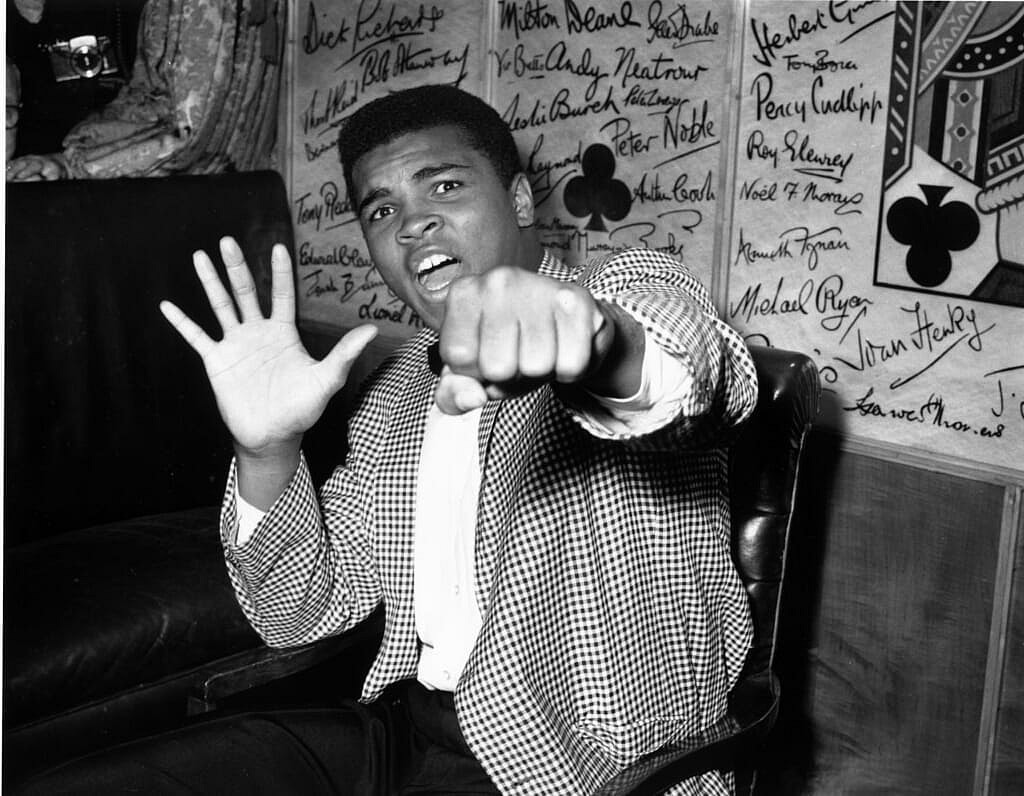Muhammad Ali is one of the most charismatic trailblazers in history whose every move has been documented in and out of the ring. Still, there is still so much left to be known about the larger-than-life boxer.
Muhammad Ali is a four-part docuseries from acclaimed filmmaker Ken Burns , who spent six years developing the feature that spotlights the pivotal moments of Ali’s life. They include his rise to heavyweight champion, change of name, refusal to fight in the Vietnam War, rivalry with Joe Frazier and defeating George Foreman at Rumble in the Jungle.

Burns co-directed the docuseries with his daughter, Sarah Burns, and David McMahon. It will offer archive footage and interviews with scholars, sports figures, and luminaries, such as Rev. Jesse Jackson, Kareem Abdul-Jabbar, Ali’s daughters, and his ex-wives.
Rasheda Ali Walsh is used to documentaries about her father, whose bravado captured the world. His spirit still draws attention more than five years after Ali’s death in 2016, at the age of 74, after a 32-year battle with Parkinson’s disease.
Ali Walsh was drawn to this project after Sarah Burns reached out and detailed it would be a comprehensive one about the man she calls “daddy.”
“Not as a boxer, but as a Muslim, a father, a brother, husband, a poet, a patriot, and an ambassador of peace. And my radar went off,” Ali Walsh tells theGrio.
The famed boxer was born Cassius Marcellus Clay Jr. in Louisville, Kentucky during the Jim Crow era. At the age of 12, Ali already knew he’d be the greatest of all time and change the world.
“He wanted respect. At a young age, he was really trying to retain that for not just himself, but his people. So, I really think that the movie encompasses what my dad felt — who he was as a young boy, growing into a young man and then eventually evolving into this huge figure because all of his convictions, all of his principles. His core principles follow him throughout his whole entire life,” she says.
Ali Walsh believes that her father’s imperfections are at the very essence of why so many remain drawn to him. He didn’t sanitize himself in life and this project doesn’t do so either in service of his legacy.
“He was flawed, but he was always sincere,” she says.
Ali still resonates and is relevant at this time in history as the issues of social justice are at the forefront of discourse. Ali refused to be drafted in 1966 to the Vietnam War due to his religious beliefs, declaring, “My conscience won’t let me go shoot my brother, or some darker people, or some poor hungry people in the mud for big powerful America.”
His stance cost him his heavyweight championship, livelihood, and a conviction for violating the Universal Military Training and Service Act. Ali was heavily criticized, but is now revered as a blueprint for athletes using their platforms for advocacy.
“Daddy would be so happy that people are inspired by his actions, by his bravery, not succumbing to his fears, because my dad had many trials and tribulations. He had a lot of people against him and he had death threats. We had opposition, including people in his own camp,” Ali Walsh recalls.
“So, he wanted his story to be told so that the younger generation, who didn’t grow up watching him go through this, can go through it and learn from it. That’s why my dad’s name comes up in movements like Black Lives Matter because he moved.”
Ali stood proudly at the intersection of race, celebrity, and culture.
“He stirred up the pot in a sense. He opened up dialogue. That was crazy back then that,” Ali Walsh continues.
He may have been bombastic in public but at home, he was a “softie” who let his kids get the better of him. He was also a supportive grandfather, especially supporting grandson Nico Ali Walsh in the infancy of his career.
The 21-year-old had his pro boxing debut in August and won with a TKO.
“As Nico started to gravitate more toward the sport, my dad gave him so many great words of wisdom,” Ali Walsh remembers.
In her own way, she is also carrying the banner of her father and keeping the vow she made to him on his deathbed.
“I made him a promise that I would do the best I could to try to carry on his life and make it to the best, to the best of my abilities. I think this project is somehow doing that,” Ali Walsh says.
Muhammad Ali will air on PBS from Sept. 19-22 at 8:00-10:00 p.m. ET.
Watch the trailer below.
Have you subscribed to theGrio’s podcast “Dear Culture”? Download our newest episodes now!
TheGrio is now on Apple TV, Amazon Fire, and Roku. Download theGrio today!

